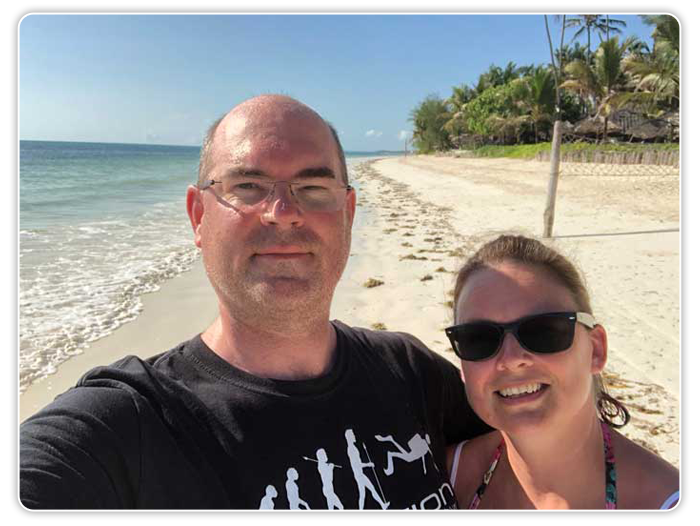Adwords: How to Greatly Lower Your Cost Per Click
Just as your credit score is important in getting a loan, your Quality Score has huge influence over the cost and effectiveness of your paid search campaigns.
So what is Quality Score? It’s Google’s rating of the quality and relevance of your keywords and PPC ads. And it’s used to determine the cost you’re paying per click.
Your Quality Score is also multiplied by your maximum bid to determine your ad rank in the ad process, so you can see how crucial it is to have the best score possible.
Your Quality Score depends on factors such as:
- Your click-through rate (CTR)
- The relevance of each keyword to its ad group
- The quality and relevance of your landing page
- The relevance of your ad text
- And even your historical Adwords account performance
Naturally, Google isn’t telling anyone how much each factor impacts the Quality Score algorithm, but we do know that click through rate is the most important component.
Looking at it from Google’s point of view, when more people who see your ad click on it, that’s telling Google that your ads are relevant and helpful to searchers. Which is why Google then rewards you with higher ad rankings and lower costs.
Generally speaking, the higher your Quality Score, the lower your cost per conversion. The better you are at fulfilling a searcher’s needs, the less Google will charge you for an ad click.
Quality Score affects your CPC:
- 10 discounted by 50.0% – Yeah!!
- 9 discounted by 44.2% – Cool!
- 8 discounted by 37.5% – Sweet
- 7 discounted by 28.6% – Not bad
- 6 increased by 16.7% – Better than nothing
- 5 Google benchmark
- 4 increased by 25.0% – Whoops
- 3 increased by 67.3% – Oh-oh
- 2 increased by 150.0% – OUCH!
- 1 increased by 400.0% – &%$#@
How Can You Improve Your Google Quality Score?
1: Use branded keywords
This might be counter-intuitive, but if you use at least 15% of your keyword budget for branded keywords, it will pull up your overall quality score.
Branded terms are extremely cheap because there isn’t much competition for them.
And branded terms tend to get super high click through rates and quality scores, lifting your account-wide average, which saves you money.
2: Use long-tail keywords
Competitive keywords aren’t just difficult to rank for, they’re also problematic in pay-per-click as well, especially if you have a lot of competition.
Long-tail keywords are generally more effective because they’re more specific and better at pre-qualifying your traffic.
They also convert at a higher rate because they’re more closely aligned with your purchasing funnel.
And they’re less competitive, so they cost less on a per-click basis.
Strive to have over 70% of your keywords include three or more words, and you’ll see your click through rates and quality score both improve.
3: Use an exclamation point
Okay, I know this one sounds silly, but it works. Google allows you to use one exclamation point in your ad, so do it. There’s just something about that symbol that gets people to click.
Don’t believe me? Run a test. Use two nearly identical ads – one with an exclamation point, one without – and see which one gets the higher click through rate.
You’ll see the results almost immediately.
But there are exceptions: You might not want to say, “Best funeral parlor ever!”
Or maybe you do. ??
4: If it’s true, use the word ‘free’
If you really are giving something away for free, such as a free trial, then say so. Using the word ‘free’ can definitely improve your click through rate, thereby improving your quality score, too.
5: Optimize your ads
In addition to having the right keywords, improving your click through rate is all about optimizing your ads by using A/B testing and writing ads that clearly differentiate what you offer from your competitors.
One method to make sure your ads are highly targeted is to write more of them. Small AdWords accounts usually have too few text ads.
Adding more gives you the opportunity to get the right ad in front of the right searchers, and show them you have exactly what they are looking for.
6: Put in the work
Account activity counts when it comes to your quality score. Most small business accounts fail because the person in charge of PPC isn’t doing enough work.
Every month you should be writing new text ads, adding keywords and creating new ad groups.
Your goal is to consistently work to optimize your account. Yes, Google really does know when you’re working on your account and when you’re not, and Google rewards those who put in the time to get things right.
These simple steps can greatly improve your quality score, bringing your cost per click down and saving you money, while better targeting your ideal customers.
It’s a win-win all around for your business and your bottom line.
What This Guy Stumbled Across By Accident Nearly TWENTY YEARS AGO Is Anything But Average.

It's Still Banking Him $25,000 - $35,000 EVERY SINGLE MONTH!
Privacy Policy: We value your privacy. You can unsubscribe from receiving future emails with 1 click at any time.























